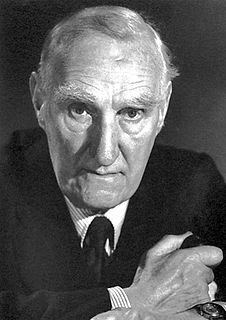A Quote by Kevin DeYoung
Legalism is a problem in the church, but so is anti-nomianism. Granted, I don't hear anyone saying, 'Let's continue in sin that grace may abound'. That's the worse form of antinomianism. But strictly speaking, antinomianism simply means no-law, and some Christians have very little place for the law in their pursuit of holiness.
Related Quotes
Struggling against the legalism of simple obedience, we end by setting up the most dangerous law of all, the law of the world and the law of grace. In our effort to combat legalism we land ourselves in the worst kind of legalism. The only way of overcoming this legalism is by real obedience to Christ when he calls us to follow him; for in Jesus the law is at once fulfilled and cancelled.
To be risen with Christ means not only that one has a choice and that one may live by a higher law - the law of grace and love - but that one must do so. The first obligation of the Christian is to maintain their freedom from all superstitions, all blind taboos and religious formalities, indeed from all empty forms of legalism.
The whole life of Christians ought to be an exercise of piety, since they are called to sanctification. It is the office of the law to remind them of their duty and thereby to excite them to the pursuit of holiness and integrity. But when their consciences are solicitous how God may be propitiated, what answer they shall make, and on what they shall rest their confidence, if called to his tribunal, there must then be no consideration of the requisitions of the law, but Christ alone must be proposed for righteousness, who exceeds all the perfection of the law.
It is often said that the progression from simple to complex runs counter to the normal statistics of chance that are formalized in the Second Law of Thermodynamics. Strictly speaking, we could avoid this criticism simply by insisting that the Second Law does not apply to living systems in the environment in which we find them. For the Second Law applies only when there is no overall flow of energy into or out of a system, whereas all living systems are sustained by a net inflow of energy.
Grace means that God does something for me; law means that I do something for God. God has certain holy and righteous demands which he places upon me: that is law. Now if law means that God requires something of me for their fulfillment, then deliverance from law means he no longer requires that from me, but himself provides it.
The Law was given by Moses; the moral law, to discover the extent and abounding sin; the ceremonial law, to point out, by typical sacrifices and ablutions, the way in which forgiveness was to be sought and obtained. But grace, to relieve us from the condemnation of the one, and truth answerable to the types and shadows of the other, came by Jesus Christ.
We make a big mistake when we conclude that the law is the answer to bad behavior. In fact, the law alone stirs up more of such behavior. People get worse, not better, when you lay down the law. To be sure, the Spirit does use both God's law and God's gospel in our sanctification. But the law and the gospel do very different things.
Modern Christians, especially those in the Western world, have generally been found wanting in the area of holiness of body. Gluttony and laziness, for example, were regarded by earlier Christians as sin. Today we may look on these as weaknesses of the will but certainly not sin. We even joke about our overeating and other indulgences instead of crying out to God in confession and repentance.
The law hath so many contradictions and varyings from itself, that the law may not improperly be called a law-breaker. It is become too changeable a thing to be defined: it is made little less a Mystery than the Gospel. The clergy and the lawyers, like the Freemasons, may be supposed to take an oath not to tell the secret.



































